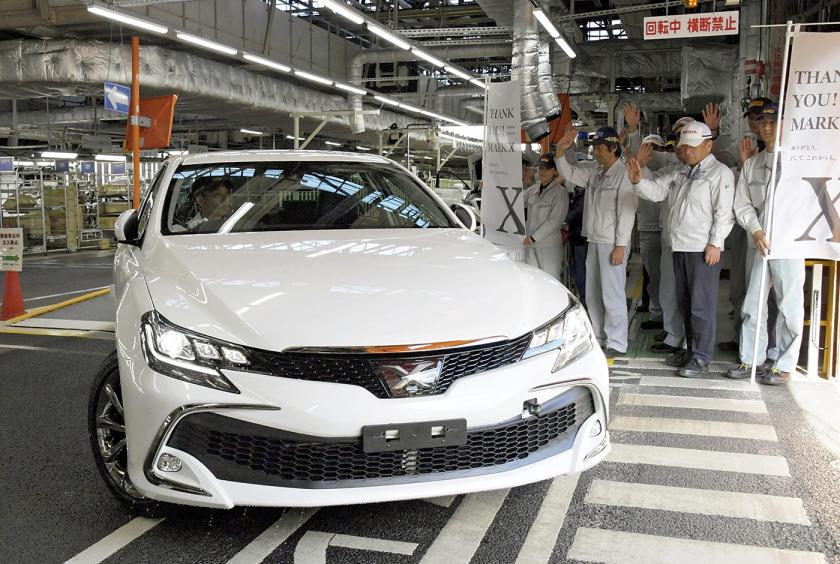TOKYO (The Japan News/ANN) - The choice to discontinue these models appears to reflect the challenges facing the auto industry, which include the growing importance of investing in next-generation technologies and the fading presence of the domestic market.
Japanese automakers ended production of a number of models in 2019 that had been popular in the Showa and Heisei eras. The choice to discontinue these models appears to reflect the challenges facing the auto industry, which include the growing importance of investing in next-generation technologies and the fading presence of the domestic market.
On Dec. 23, Toyota Motor Corp. ended production of its Mark X midsize sedan at a plant in Toyota, Aichi Prefecture. The model debuted in 1968 as the Mark II. Over half a century, a total of about 6.88 million units of the model were produced domestically.
The Mark II, which had strong driving performance and high-end components, was a byword for luxury cars in the late 1980s, when about 200,000 units were sold per year.
Recently, however, consumer tastes have shifted to minivans and other such vehicles, with sales of sedans stagnating. The model was renamed the Mark X in 2004, but by 2018, annual sales had sunk to the 4,000-unit level.
Toyota also stopped making its Estima minivan in 2019. The model debuted in 1990. With a rounded design and its “genius egg” catchphrase, the Estima was a pioneering minivan.
In December, Nissan Motor Co. ended production of the Cube, a compact car it began selling in 1998. The small, boxy car had a spacious interior and was popular among young people and women.
However, Nissan had not updated its safety features, and domestic sales fell from a peak of about 142,000 units in 2003 to about 9,000 in 2018.
In 2019, Nissan also stopped domestic production of the Juke, a small SUV with a unique design. A factory in Britain will manufacture a fully redesigned model, but at this point, the company does not plan to sell it in Japan.
In August, Mitsubishi Motors Corp. discontinued domestic production of the Pajero, which debuted in 1982 and became one of the prototypical off-road vehicles.
Automakers are being pressed to pour resources into research and development of next-generation technologies such as autonomous driving and electric cars. Added to this is the continuing contraction of the domestic passenger car market.
Many analysts believe this trend will accelerate due to the aging of the population, low birthrate and spread of car sharing services.
As it is becoming increasingly difficult for carmakers to bear the costs of making sure existing models comply with new regulations on fuel economy and safety, analysts expect companies to continue to reduce their lineups.
By 2025, Toyota plans to halve the number of models it sells in Japan, which is currently about 60. Nissan also plans by fiscal 2022 to reduce its number of models by at least 10% from the fiscal 2018 figure.











